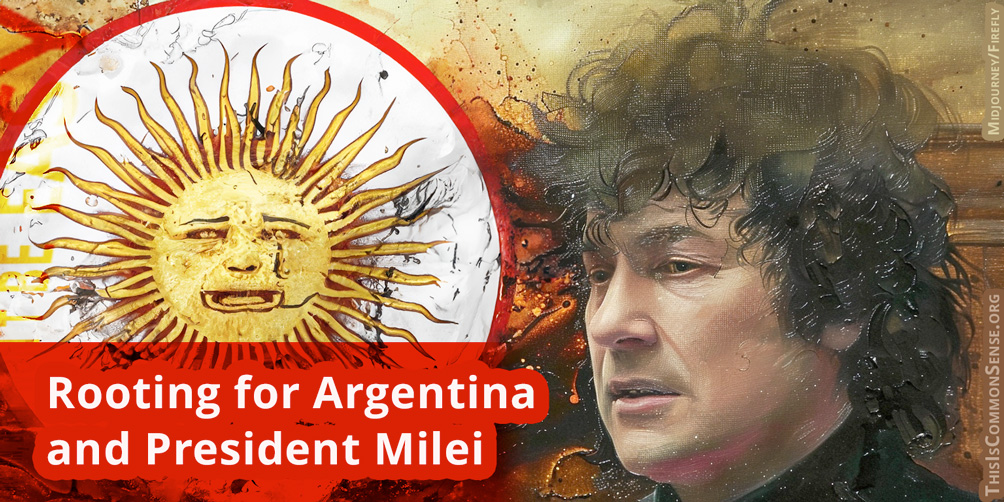The current president of Argentina is an avowed “anarcho-capitalist.” He isn’t really — but close enough for government work.
It’s more accurate to say that Javier Milei is a capitalist and libertarian. He has taken on the job of extricating the Argentinian economy from the mire of socialism and corruption — unleashing outlawed
He seeks to do it not by pushing for micro-changes around the edges of the margins of government spending and intrusions but by figuratively wielding the chainsaw that he literally wielded during his
One sign of the success of his “shock therapy” cited by The New York Sun is the “first budget surplus in more than a decade.” A monthly surplus of almost $600 million is the first surplus since the summer of 2012.
But, the Sun quickly adds, Milei’s various radical proposals still face an uphill battle in the legislature. All those people who created the mire are still around.
There are hopeful signs. The lower chamber has already passed a preliminary or framework agreement to make various basic reforms. These include privatizing of currently state-operated companies, deregulation, and revamping of criminal and environmental laws.
The lawmakers “chose to end the privileges of the caste and the corporate republic, in favor of the people,”
Meanwhile, though, egged on by unions, thousands of Argentinians have taken to the streets in a general strike to protest the reforms. Milei can win, but it won’t
This is Common Sense. I’m Paul Jacob.
PREVIOUS COMMENTARIES ON
Milei Defends Capitalism
January 24, 2024
Market Rents Work in Argentina
January 23, 2024
Milei’s Chainsaw
January 6, 2024
To End the Great Declension
December 13, 2023
The Outsider Who Won
November 20, 2023
The Ultimate Outsider
October 24, 2023
Two Libertarians, North and South
September 19, 2023
Illustration created with Midjourney and Firefly
—
See all recent commentary
(simplified and organized)

3 replies on “The Shock of Surplus”
Well, that’s the most clever use of “close enough for government work” that I’ve ever encountered.
Mind you that I think that someone with an end-goal of anarchism could reasonably claim to be an anarchist, even if he or she were willing to use the state in the mean time. (That end-goal is unattainable, so I’ve no personal desire to call myself anarchist except ironically, after having been called “a limited anarchist” by a friend.)
I am still very pessimistic about Milei’s chances of survival.
So if I am correct, our issue is being driven by establishment elites, government and unions. It will surely never occur but maybe some of those causing issues with our overspending will have the light switch turn on heads. I know, I’m dreaming.
How many Argentinians who are striking just happen to work for the state? Public sector employee unions aren’t likely to give concessions or accept lower salaries. State-operated companies aren’t easily broken up. Too many people have a stake in their existence.